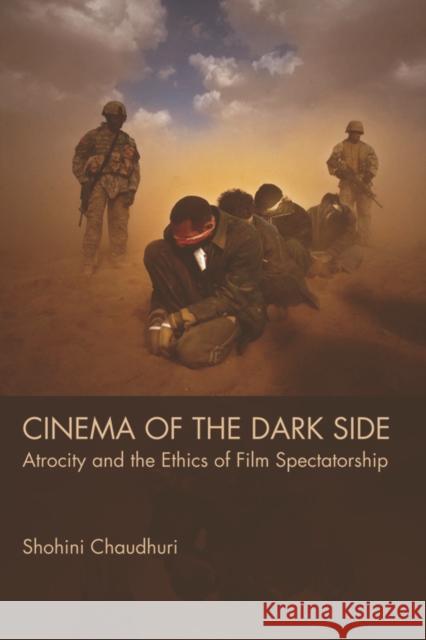Cinema of the Dark Side: Atrocity and the Ethics of Film Spectatorship » książka
Cinema of the Dark Side: Atrocity and the Ethics of Film Spectatorship
ISBN-13: 9780748642632 / Angielski / Twarda / 2014 / 208 str.
Cinema of the Dark Side: Atrocity and the Ethics of Film Spectatorship
ISBN-13: 9780748642632 / Angielski / Twarda / 2014 / 208 str.
(netto: 464,55 VAT: 5%)
Najniższa cena z 30 dni: 352,62 zł
ok. 30 dni roboczych
Bez gwarancji dostawy przed świętami
Darmowa dostawa!
A few days after 9/11, US Vice-President Dick Cheney invoked the need for the USA to work 'the dark side' in its global 'War on Terror'. In Cinema of the Dark Side, Shohini Chaudhuri explores how contemporary cinema treats state-sponsored atrocity, evoking multiple landscapes of state terror. She investigates the ethical potential of cinematic atrocity images, arguing that while films help to create and confirm normative perceptions about atrocities, they can also disrupt those perceptions and build different ones. Asserting a crucial distinction between morality and ethics, the book proposes a new conceptualisation of human rights cinema that repositions human rights morality within an ethical framework that reflects upon the causes and contexts of violence. It builds upon theories of embodied spectatorship to explore how films can implicate us in histories that may appear to be distant and unrelated to us, and how they draw connections between past and present patterns of oppression.
The book covers a diverse spectrum of 21st century cinema dealing with documentary or fictional representations of atrocity such as state-sanctioned torture, genocide, enforced disappearance, deportation, and apartheid, including Zero Dark Thirty (2012), Standard Operating Procedure (2008), Hotel Rwanda (2004), Sometimes in April (2005), Nostalgia for the Light (2010), Chronicle of an Escape (2006), Children of Men (2006), District 9 (2009), Waltz With Bashir (2008), and Paradise Now (2005). Cinema of the Dark Side provides readers with fresh insights into how we respond to atrocity images and the ethical issues at stake.











